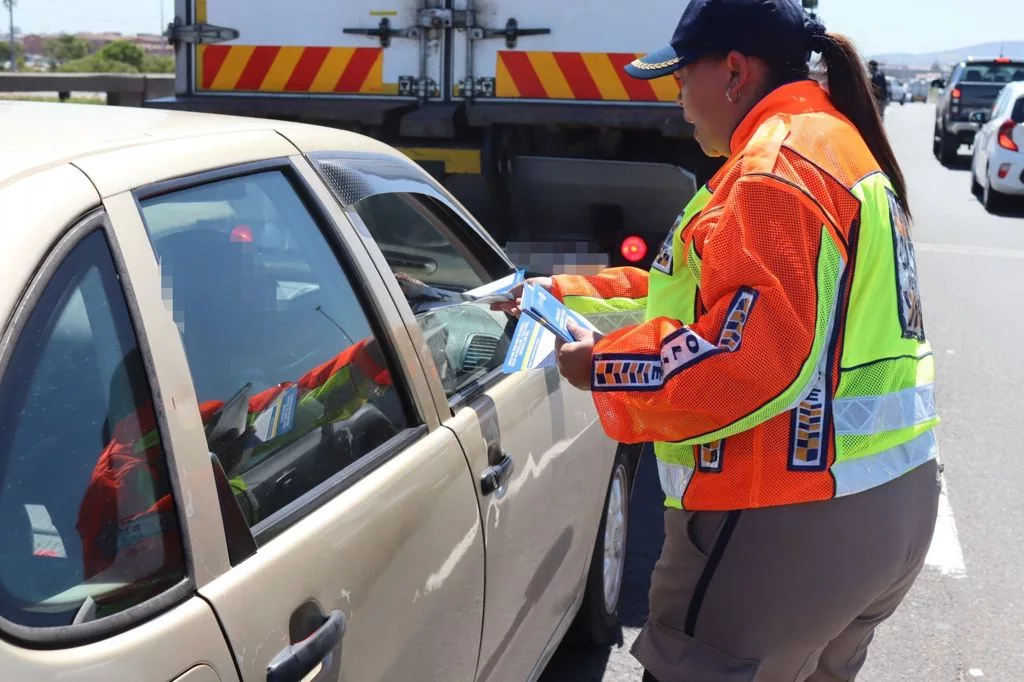The Pioneering Alliance between the National School of Government and the University of Johannesburg aims to improve state capacity and professionalize public administration. UJ academic staff will participate in research and education aligned with NSG initiatives during their sabbaticals, promoting knowledge exchange, innovation, and teamwork. The collaboration signals a new stage in how academic establishments and government agencies work together, with a common goal of nurturing a competent, ethical developmental state.
What is the Pioneering Alliance between the National School of Government and University of Johannesburg?
The Pioneering Alliance is a collaboration between the National School of Government (NSG) and the University of Johannesburg (UJ) that merges scholarly excellence and public service to enhance state capacity and professionalize public administration. The partnership allows UJ academic staff to participate in research and education aligned with the NSG’s initiatives during their sabbaticals, promoting knowledge exchange, innovation, and teamwork. The innovative alliance aims to shape future leaders in public service and propel the professionalization of the public sector.
A groundbreaking collaboration between the National School of Government (NSG) and the University of Johannesburg (UJ) aims to merge scholarly excellence and public service to reinforce state capacity and professionalize public administration. This inventive partnership will enable the secondment of UJ academic staff to the NSG during their sabbatical leave, promoting a culture of knowledge exchange, innovation, and teamwork in the quest for superior governance and public administration.
A New Chapter in Cooperation
The foundation of this partnership is a recent Memorandum of Understanding (MOU) signed between the NSG and UJ. This MOU creates opportunities for UJ professors to participate in research and education aligned with the education, training, and development (ETD) initiatives of the NSG during their sabbaticals. This mutually advantageous cooperation will encourage the sharing of knowledge and resources, significantly boosting the NSG’s attempts to enhance state capacity.
A Forward-Thinking Alliance
Minister for Public Service and Administration, Ms. Noxolo Kiviet, has praised this innovative partnership for its role in advancing the professionalization of the public service. She recognized that the cooperation between scholars and the NSG will have extensive implications for building an ethical and competent developmental state, a top priority for the government.
Encouraging Scholarly Excellence in Public Administration
The Vice-Chancellor and Principal of UJ, Professor Letlhokwa George Mpedi, is eager about the secondment of distinguished academic staff to the esteemed NSG. He emphasized the opportunities this collaboration offers for both improving the research and teaching expertise of UJ scholars and promoting public administration and governance practices in the nation. UJ’s commitment to forming partnerships with leading institutions like the NSG showcases its dedication to generating positive societal impacts and molding future public service leaders.
Shared Advantages and Upcoming Opportunities
The Principal of the NSG, Prof. Busani Ngcaweni, expressed a warm welcome to the agreement, foreseeing the numerous benefits that the public sector will obtain from this arrangement. He stressed that academics would share their knowledge while acquiring practical experience in public service by working in a government department for a period. Similarly, government departments will greatly profit from the expertise and research capabilities of the seconded academic staff.
Acknowledging the potential influence of this partnership, Prof. Ngcaweni disclosed that the NSG is exploring similar agreements with other higher education institutions to expand the range of expertise available to the government.
A New Perspective on Public Service
The landmark agreement between the NSG and UJ signifies a considerable shift in how academic establishments and government agencies collaborate. By enabling the secondment of UJ academic staff to the NSG, this partnership offers a unique opportunity for academia and public service to converge. The common goal of enhancing state capacity and nurturing a competent, ethical developmental state exemplifies a forward-thinking approach that will undoubtedly contribute to increased innovation, knowledge-sharing, and scholarly excellence in public administration and governance.
In a time where the borders between academia and the public sector are becoming more indistinct, this groundbreaking alliance between the National School of Government and the University of Johannesburg marks a new phase in the pursuit of improved governance, public administration, and societal impact. By utilizing the combined expertise of both institutions, this collaboration promises to shape future leaders in public service and propel the ongoing professionalization of the public sector.
1. What is the Pioneering Alliance between the National School of Government and University of Johannesburg?
The Pioneering Alliance is a collaboration between the National School of Government (NSG) and the University of Johannesburg (UJ) that merges scholarly excellence and public service to enhance state capacity and professionalize public administration. The partnership allows UJ academic staff to participate in research and education aligned with the NSG’s initiatives during their sabbaticals, promoting knowledge exchange, innovation, and teamwork. The innovative alliance aims to shape future leaders in public service and propel the professionalization of the public sector.
2. What is the foundation of this partnership?
The foundation of this partnership is a recent Memorandum of Understanding (MOU) signed between the NSG and UJ. This MOU creates opportunities for UJ professors to participate in research and education aligned with the education, training, and development (ETD) initiatives of the NSG during their sabbaticals.
3. What are the advantages of this collaboration?
This collaboration between the NSG and UJ offers numerous advantages, including knowledge exchange, innovation, and teamwork. The secondment of UJ academic staff to the NSG during their sabbatical leave will encourage the sharing of knowledge and resources, significantly boosting the NSG’s attempts to enhance state capacity. Similarly, government departments will greatly profit from the expertise and research capabilities of the seconded academic staff.
4. What is the role of the Minister for Public Service and Administration in this partnership?
Minister for Public Service and Administration, Ms. Noxolo Kiviet, has praised this innovative partnership for its role in advancing the professionalization of the public service. She recognized that the cooperation between scholars and the NSG will have extensive implications for building an ethical and competent developmental state, a top priority for the government.
5. What is the Vice-Chancellor and Principal of UJ’s perspective on this partnership?
The Vice-Chancellor and Principal of UJ, Professor Letlhokwa George Mpedi, is eager about the secondment of distinguished academic staff to the esteemed NSG. He emphasized the opportunities this collaboration offers for both improving the research and teaching expertise of UJ scholars and promoting public administration and governance practices in the nation.
6. What is the Principal of the NSG’s perspective on this partnership?
The Principal of the NSG, Prof. Busani Ngcaweni, expressed a warm welcome to the agreement, foreseeing the numerous benefits that the public sector will obtain from this arrangement. He stressed that academics would share their knowledge while acquiring practical experience in public service by working in a government department for a period.
7. Will the NSG explore similar partnerships with other institutions?
Acknowledging the potential influence of this partnership, Prof. Ngcaweni disclosed that the NSG is exploring similar agreements with other higher education institutions to expand the range of expertise available to the government.
8. What is the significance of this partnership in the pursuit of improved governance and public administration?
The landmark agreement between the NSG and UJ signifies a considerable shift in how academic establishments and government agencies collaborate. By enabling the secondment of UJ academic staff to the NSG, this partnership offers a unique opportunity for academia and public service to converge. The common goal of enhancing state capacity and nurturing a competent, ethical developmental state exemplifies a forward-thinking approach that will undoubtedly contribute to increased innovation, knowledge-sharing, and scholarly excellence in public administration and governance.








